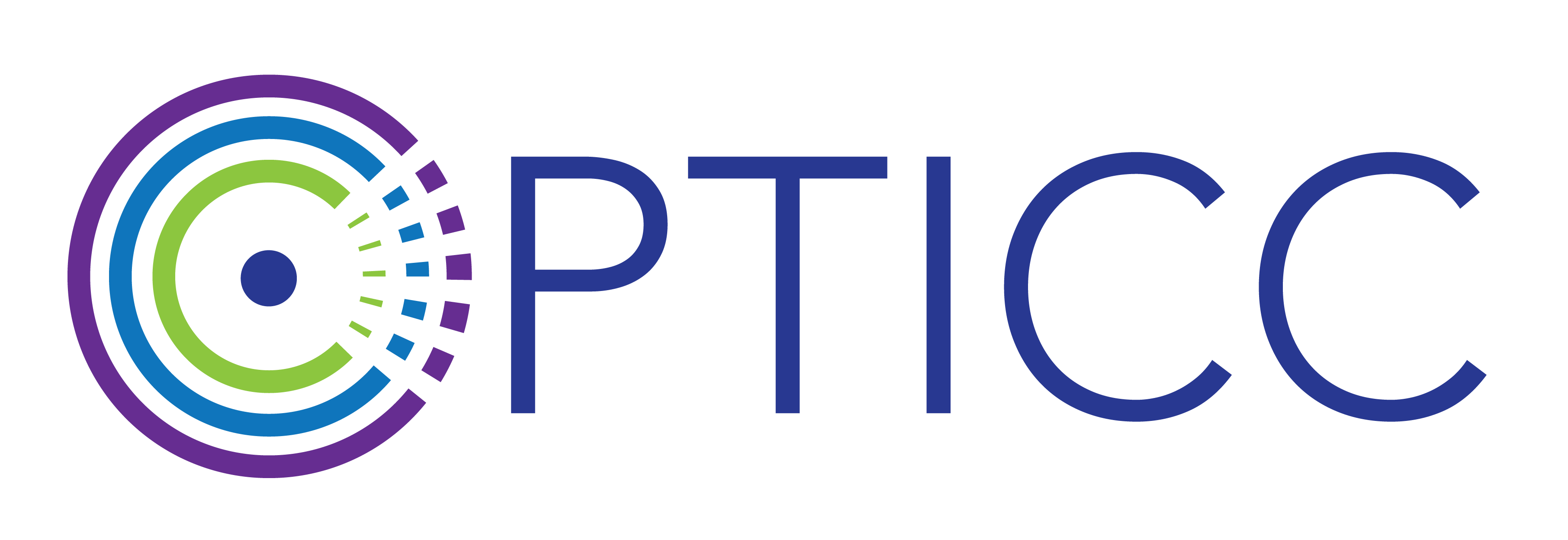Partnerships for relevant and practice-based implementation research.
The OPTICC Center Implementation Laboratory is a network of diverse clinical and community sites interested optimizing evidence-based intervention implementation, capable of conducting “in
clinic” observational, experimental, and quasi-experimental studies at any point along the cancer care continuum for a wide range of cancers.
Our Implementation Laboratory Partners provide opportunities to refine methods for optimizing evidence-based intervention implementation in diverse service contexts. Partner sites include primary care clinics, cancer care centers, large health systems, outpatient and inpatient settings, both rural and urban environments, and state and local health departments.
Implementation Laboratory Partners also play a critical role in shaping the research agenda and priorities of the OPTICC Center. Through regular outreach, communication, and collaborations, research solicited and supported by the
OPTICC Center will focus on addressing current Partner implementation challenges with timely and actionable evidence.
Tri-Cities Cancer Center
The Tri-Cities Cancer Center is a freestanding non-profit cancer treatment facility serving the cities of Kennewick, Pasco, Richland, and the surrounding rural communities in Eastern Washington. The Cancer Center provides low-cost screening services to the community, but the main focus is on treating cancer and delivering a workplace wellness program called Cancer Crushing Executives.
WWAMI region Practice and Research Network (WPRN)
WPRN is a regional practice-based research network of 65 primary care clinics across 28 organizations in the 5-state region of Washington, Wyoming, Alaska, Montana, and Idaho (WWAMI). Affiliated practices include community health centers, private practices, and university-affiliated and government-operated clinics.
Seattle Cancer Care Alliance (SCCA) Regional Network
The SCCA Regional Network is a collaborative group of 10 health care organizations providing community-based oncology services in Washington, Montana, Idaho, Alaska, and Hawaii. Nearly 100 oncologists within SCCA serve diverse rural and suburban patient populations across the spectrum of racial and ethnic groups with the region.
Northwest Participant and Clinical Interactions Network
NW PCI is a collaborative group of clinical and translational research centers, affiliated with medical centers, healthcare systems, clinics and universities, including primary care and specialty clinics, as well as hospitals. The NW PCI Network includes 22 cancer programs across Washington, Wyoming, Alaska, Montana, Idaho and Oregon.
Washington State Academic Health Departments
Seattle & King County Public Health and the Washington State Department of Health collaborate with the UW to generate practice-relevant research, assure the utilization of evidence in practice, and grow a competent and evidence-based public health workforce. These Academic Health Departments are affiliated with 35 public health departments and districts where cancer control and prevention activities are delivered.
Kaiser Permanente Washington (KPWA)
KPWA provides medical coverage and care to more than 570,000 members in Washington State and Northern Idaho. KPWA provides primary, specialty, hospital, home health, and inpatient skilled nursing care on a prepaid (capitation) basis. KPWA operates 26 full-services clinics in 17 cities and several 24/7 urgent care centers.
Value in Cancer Care Initiative (VCCI)
The Fred Hutchison Cancer Research Institute’s HICOR’s Value in Cancer Care Initiative engages oncology providers, patient partners, payers, health system representatives and researchers to improve the value and efficiency of cancer care delivery in Washington state. These community members contribute to HICOR’s research and oncology performance reporting initiatives through the VCC Research Working Group and the annual VCC Summit.
Breast, Cervical, and Colon Health Program (BCCHP) Learning Collaborative
BCCHP is a network of 10 federally qualified health centers (FQHCs) in Washington State that receive funding from the Washington State Department of Health (DOH) to implement evidence-based interventions to increase cancer screening rates. The FQHCs involved have more than 75 urban and rural clinics participating in evidence-based intervention implementation and evaluation.



